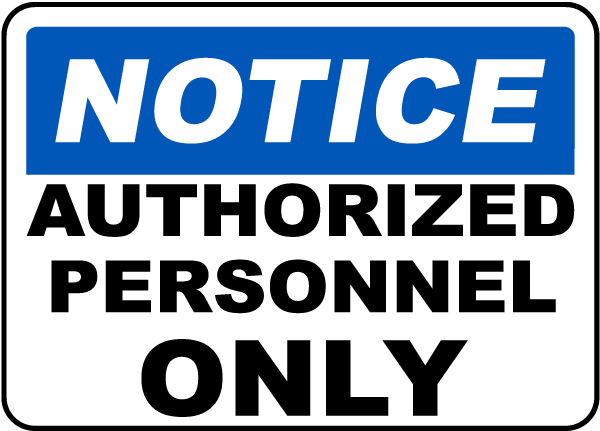Authorized Holders: Meet the Requirements for Access
Authorization is the process by which specific individuals or entities are granted permission to access restricted resources or systems. Typically, authorization is based on factors such as role, responsibility, and trustworthiness. It establishes a controlled environment designed to protect sensitive information from unauthorized access.
Requirements for Authorized Holders
Authorized holders must meet a set of requirements to maintain their access privileges. These requirements may vary depending on the specific context, but generally include:
-
Identity Verification: Confirming the identity of authorized holders through secure methods such as biometrics, digital certificates, or multi-factor authentication.
-
Role-Based Access Control (RBAC): Restricting access based on specific roles or responsibilities, ensuring that individuals can only access resources essential to their designated tasks.
-
Background Checks and Vetting: Conducting thorough checks and investigations into the backgrounds of authorized holders to assess reliability and mitigate potential risks.
-
Training and Education: Providing comprehensive training on access procedures, security protocols, and ethical guidelines to equip authorized holders with the knowledge they need to handle sensitive information responsibly.
-
定期审核和重新认证: Conducting periodic reviews and recertifications of authorized holders to ensure continued compliance, professionalism, and alignment with the organization’s security posture.
Significance of Meeting the Requirements
Meeting the requirements for authorized holders is paramount for several reasons. It:
-
Preserves Information Integrity: Restricting access to specified individuals ensures the confidentiality and integrity of sensitive information, minimizing the risk of unauthorized access or tampering.
-
Enhances Cybersecurity: Proper authorization practices reduce the risk of cyberattacks, data breaches, and other security threats by limiting access points for potential attackers.
-
Promotes Compliance: Adhering to authorization requirements helps organizations comply with industry regulations and standards that govern data protection and privacy.
-
Fosters Trust: By emphasizing transparency and accountability in access granting, organizations build trust among their employees and stakeholders, demonstrating a commitment to information security.
-
Safeguards Ethical Conduct: Training and recertification processes instill ethical guidelines in authorized holders, ensuring that sensitive information remains within the bounds of responsible use and privacy.

Image: www.safetysign.com
Expert Insights
“Authorized holders carry a significant responsibility in maintaining the integrity of access systems,” says Dr. Emily Carter, Director of Cybersecurity at Willow Creek University. “By adhering to the established requirements, they play a vital role in safeguarding sensitive information and protecting the organization’s reputation.”
Laura Harris, a renowned security consultant, emphasizes the importance of training and education. “Empowering authorized holders with the necessary knowledge ensures they have the skills and understanding to handle access responsibly and minimize security risks.”
Actionable Tips for Authorized Holders
-
Maintain the confidentiality of your credentials and access codes at all times.
-
Regularly participate in security training and education programs to stay abreast of evolving threats and best practices.
-
Report any suspicious activity or security concerns promptly to the appropriate authorities.
-
Be mindful of the scope of your authorized access and only access resources and information that are essential to your responsibilities.
-
Regularly review and update your own access requirements to ensure you continue to meet the established criteria.
Authorized Holders Must Meet The Requirements To Access
Conclusion
As an authorized holder, the responsibility to uphold the integrity of access systems rests firmly on your shoulders. By meeting the necessary requirements, including identity verification, role-based access, background checks, training, and regular reviews, you play a pivotal role in protecting sensitive information and safeguarding your organization’s reputation. Remember that authorized access carries with it ethical and professional obligations, and by fulfilling these responsibilities, you contribute to a secure and trustworthy environment for all.
